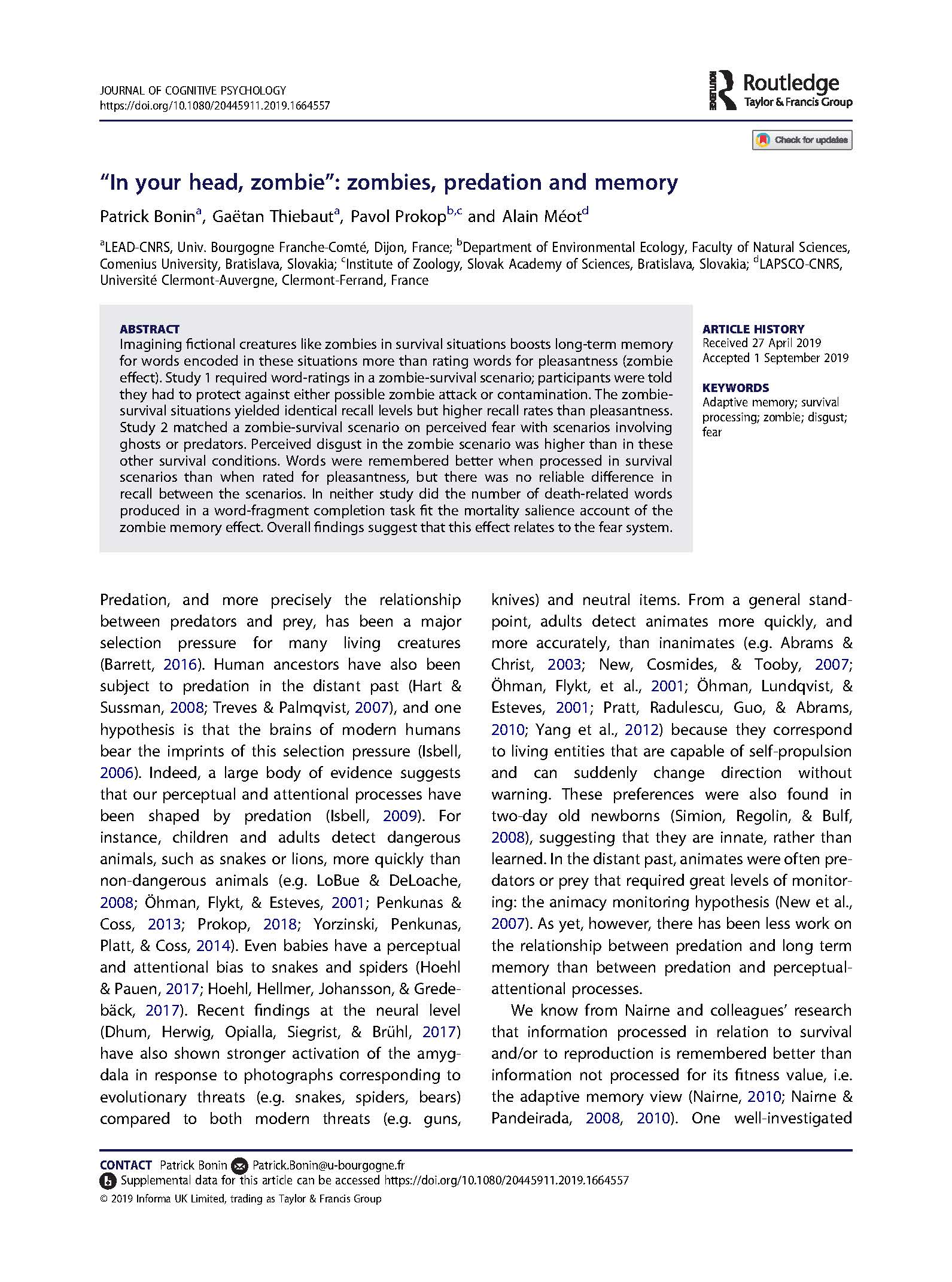Imagining fictional creatures like zombies in survival situations boosts long-term memory for words encoded in these situations more than rating words for pleasantness (zombie effect). Study 1 required word-ratings in a zombie-survival scenario; participants were told they had to protect against either possible zombie attack or contamination. The zombiesurvival situations yielded identical recall levels but higher recall rates than pleasantness. Study 2 matched a zombie-survival scenario on perceived fear with scenarios involving ghosts or predators. Perceived disgust in the zombie scenario was higher than in these other survival conditions. Words were remembered better when processed in survival scenarios than when rated for pleasantness, but there was no reliable difference in recall between the scenarios. In neither study did the number of death-related words produced in a word-fragment completion task fit the mortality salience account of the zombie memory effect. Overall findings suggest that this effect relates to the fear system.
“In your head, zombie”: Zombies, predation and memory
